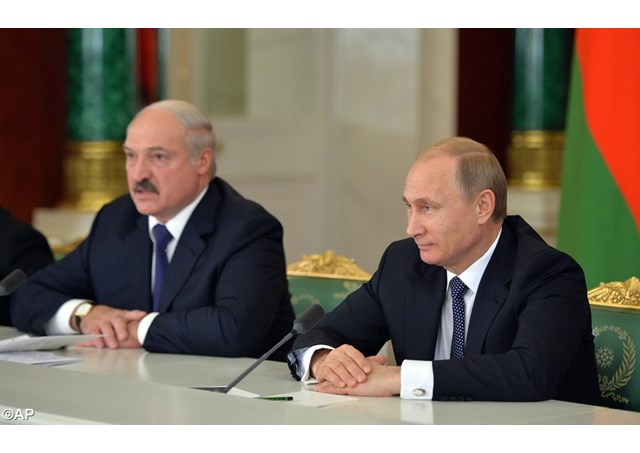
Ex-Soviet States Launch Economic Union Amid Tensions

(Vatican Radio) Russia and four former Soviet nations have completed the creation of a new economic alliance to compete with the European Union, while also discussing ways to tackle terror threats in their region. Yet the ceremony was overshadowed by fresh tensions between Russia and neighboring Belarus over economic challenges caused in part by Western sanctions.
Listen to the report by correspondent Stefan Bos:
A ceremony at the Grand Kremlin Palace in Moscow to finalize what will be known as the Eurasian Economic Union (EEU) was meant as a political victory for Russian President Vladimir Putin.
The block, which comes to existence on January 1, will include Russia, Belarus, Kazakhstan, Armenia and Kyrgyzstan. Moscow claims it will have a combined economic output of $4.5 trillion and bring together 170 million people.
But the ceremony launching the EEU didn't went as planned.
The autocratic president of Belarus, Alexander Lukashenko, launched a harsh attack on Moscow for allegedly damaging his nation's economic interests with moves to restrict exports to Russia.
FOOD ROW
Belarus, sandwiched between Russia and European Union members Poland and Lithuania, has profited handsomely from Moscow's ban on imports of European Union food in retaliation to Western sanctions on Russia over its perceived aggression in Ukraine.
Minsk soon began boosting imports of food from EU nations to resell it to Russia.
However Russia retaliated by halting imports of Belarus' own milk and meat, citing alleged sanitary reasons.
Moscow also banned the transit of Belarusian food bound for Kazakhstan through Russian territory on suspicion that much of it ended up in Russia.
Besides tensions with Belarus, Russia's president failed to convince Ukraine to join the EEU after its former pro-Moscow leader ousted in February.
TERRORIST THREATS
Yet, the presidents of the EEU member states and Tajikistan appeared to agree on tackling terrorism as part of activities of their Collective Security Treaty Organisation (CSTO).
“The situation in the world is changing dramatically," noted President Putin referring to Afghanistan and the threat of Islamic State fighters trying to spread into the region.
He added that "new problems are appearing while old ones escalate." Putin also warned that "terrorist and extremist groups are already trying to spread into Central Asia" and that the CSTO "needs to have adequate, preventive measures ready.”
The defense alliance will work out plans how to help Tajikistan reinforce its border with Afghanistan. Members say these measures are aimed at stopping terrorists and drug-traffickers getting through into the former Soviet Union.
| All the contents on this site are copyrighted ©. |


